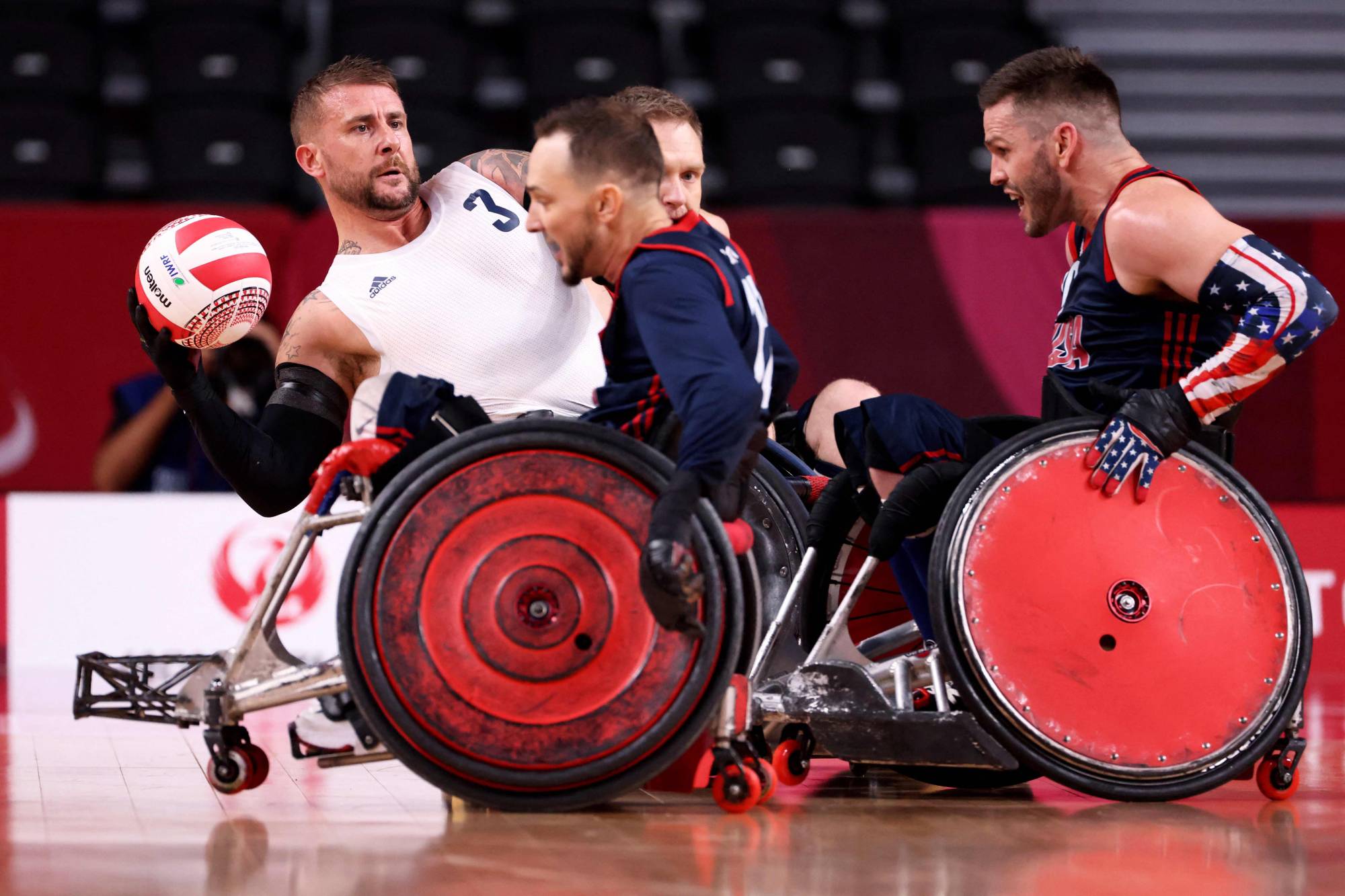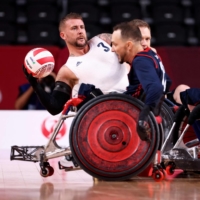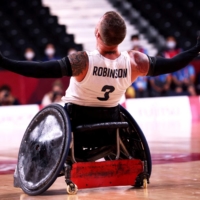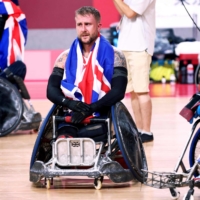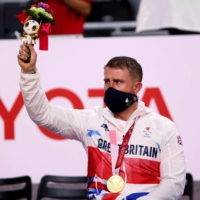Stuart Robinson delivered a chair-rattling hit during the wheelchair rugby final between Great Britain and the United States that was a reminder of why the sport is famously called "murderball."
It came at a crucial moment in the second half, with the British leading 41-40. Robinson watched as Joseph Delagrave received a pass and smashed into his chair with enough force to send the American toppling over. The play resulted in a crucial turnover that helped send Great Britain on its way to a stunning 54-49 upset of the Americans on Sunday afternoon.
Robinson had a gold medal around his neck later as he reflected on the match and everything else he's been through over the past decade. He lost his legs while serving in Afghanistan and later took up wheelchair rugby, only for the U.K. team to lose all of its funding for a couple of years. In Tokyo, he helped lead a team that few had high aspirations for past favored Japan in the semifinals and over the U.S. in the final to cap an improbable run to a gold medal.
"I'd always had this goal of being able to play at a Paralympic Games, an opportunity to perform, and I think that was the initial goal, to get here in the first place," Robinson said. "Obviously with the events of the pandemic and it looking like it could be postponed or even canceled — (it's) very fortunate that it's managed to go ahead.
"I keep banging on about how well our squad bonds together and the spirit that we've got within ourselves. Just to come here and to play how well we've played and to bounce back from the pool game defeat (against the U.S.) as well and to come back and to smash the Americans and come away with a Paralympic gold medal, it's a lot to take in."
Robinson was one of the stars for a British team that was not expected to contend for a medal in Tokyo. Great Britain had never finished higher than fourth at the Paralympics Games.
The British, however, pulled off a stunning run behind Robinson, who scored 14 tries in the final, Jim Roberts, who had 24, and a group of players who came together and all pulled their weight.
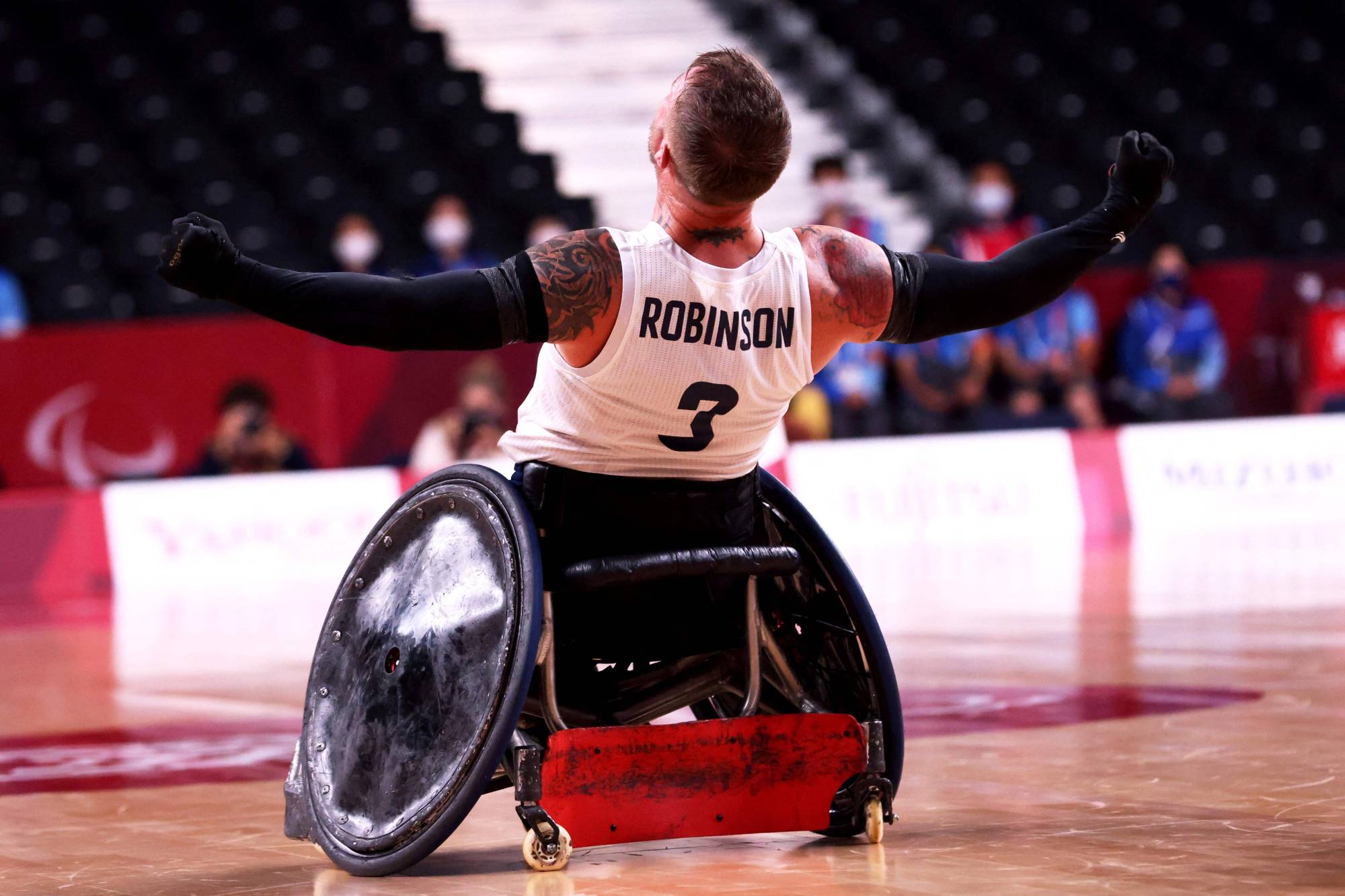
“The world rankings are there for a reason," Roberts said. "We haven’t beaten USA in a major tournament before, we haven’t beaten Japan in a major tournament for a long time and we haven’t beaten Canada in a major tournament, so to beat all of those teams was just huge for us."
In the middle of it all was Robinson, a 3.5 player who delivered some crushing hits, scored tries and was one of the tone-setters for the British team throughout the Games.
Robinson is a veteran who served in Britain's Royal Air Force. He suffered a number of serious injuries in an explosion in Afghanistan in 2013, spending six weeks in an induced coma and having both legs amputated. He was hospitalized for two months.
He's one of three military veterans who served in Afghanistan who are competing at the Games for Great Britain. The others also claimed medals, with cyclist Jaco Van Gass winning gold in the men’s C3 3,000-meter individual pursuit and powerlifter Micky Yule taking bronze in men’s under 72 kg powerlifting.
"We've never gone out there just to be a focal point for anybody," Robinson said. "To be in that fortunate position, it's a great opportunity. I think that if anyone can take anything away seeing Micky doing his lifts or see Jaco on the bike then it can only be a great thing."
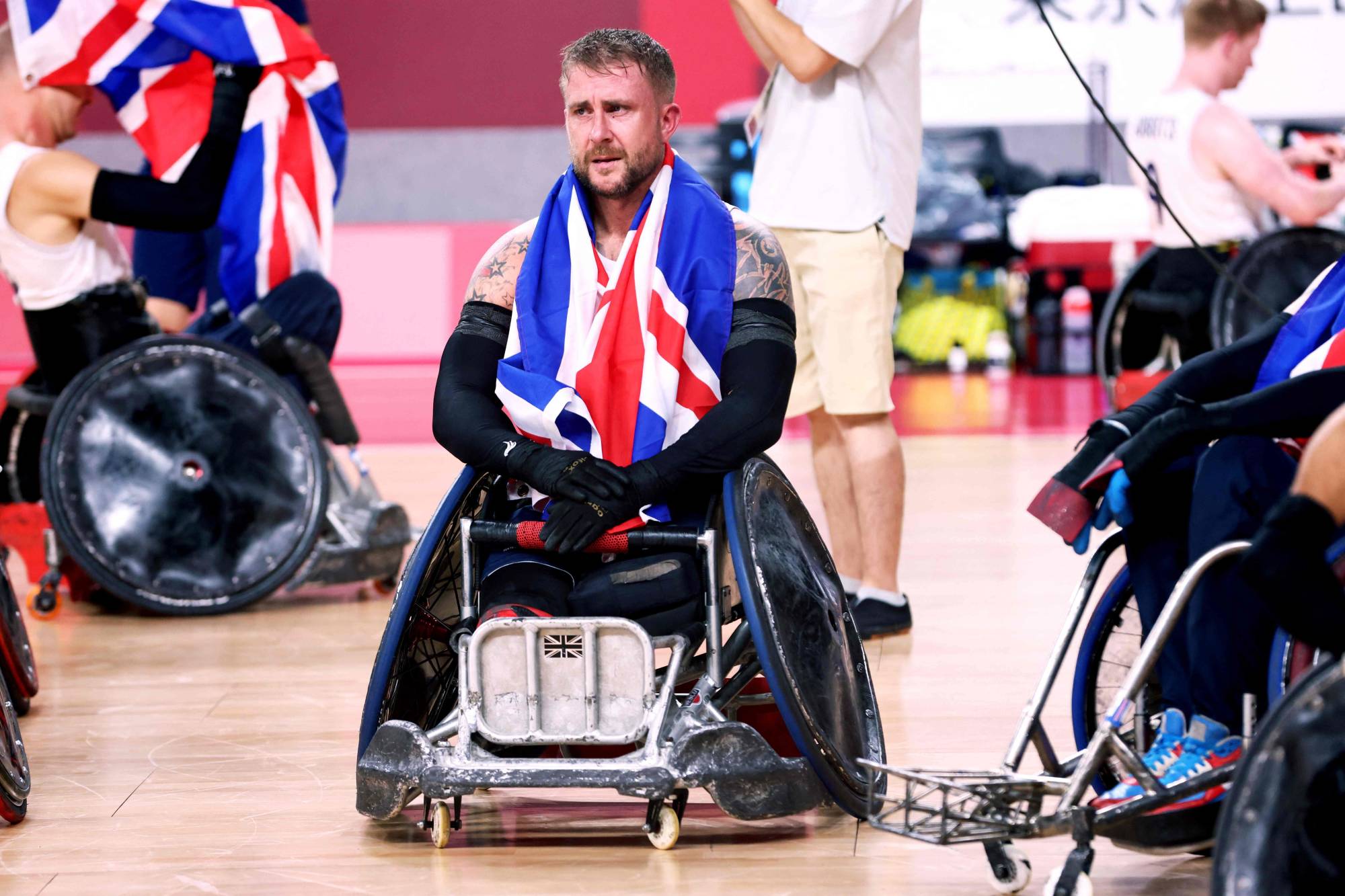
Robinson and his Team GB wheelchair teammates had to overcome adversity in their sport just to reach the Tokyo Games. The team finished fifth at the Rio Paralympics and then lost all of its funding from U.K. Sport for the Tokyo Games cycle.
"I just joined the squad just as the funding was cut," Robinson said. "I literally just left the military and the funding was cut. I was literally straight into the roller coaster of what do we do now?"
They toiled for a couple of years with what support they could get before receiving an influx of funding.
"We've had to really dig deep and then to get the funding back is just amazing," said Kylie Grimes, who became the first female wheelchair rugby player to win a gold medal. "To now get a medal and cement that and move forward with the sport is absolutely incredible. It's mind-blowing, it's history making."
Great Britain is the first European team to claim the gold medal. The British, who played a bruising style that helped them force crucial turnovers, only lost once in Tokyo, falling 50-48 against the U.S. during the pool stage.
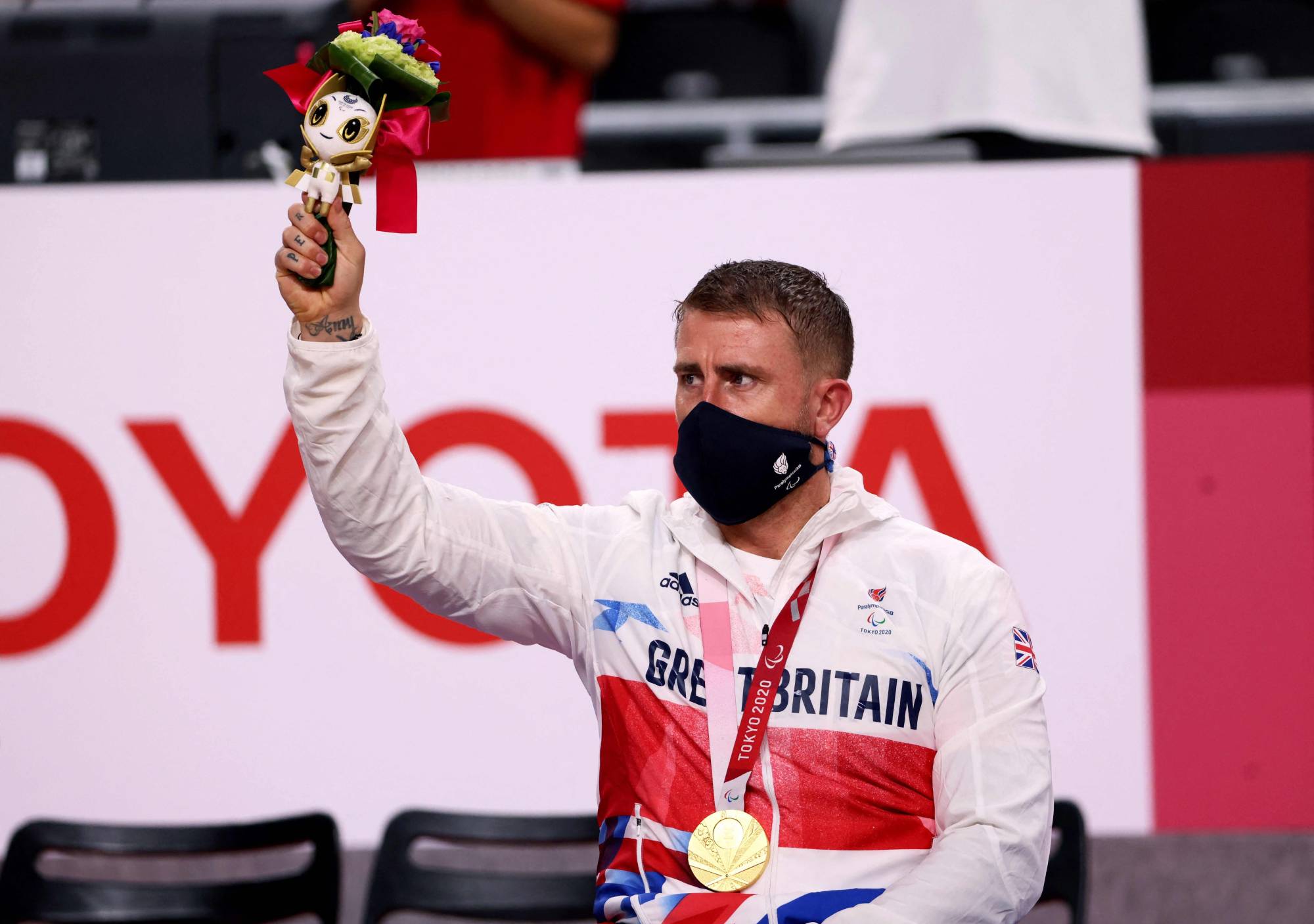
The British bullied their way past Japan in the semifinals before avenging that lone defeat to claim a historic gold.
"I think the amount of work that's gone on in the background with all the coaches and the amount of video analysis that we've done, not just them but as groups and as individual players,... we looked at how we could exploit certain weaknesses and work on our own strengths.
"We came here, we developed a massive game plan about how to play each different team. The main job was, apart from being very fit and staying healthy, was to execute each game plan."



